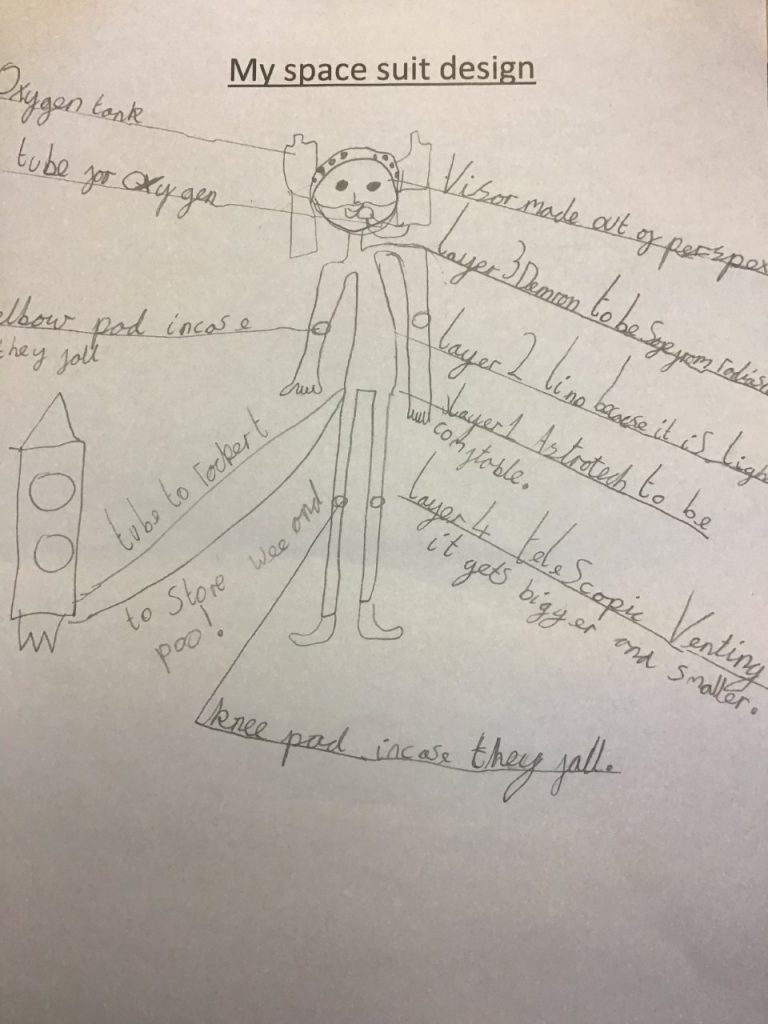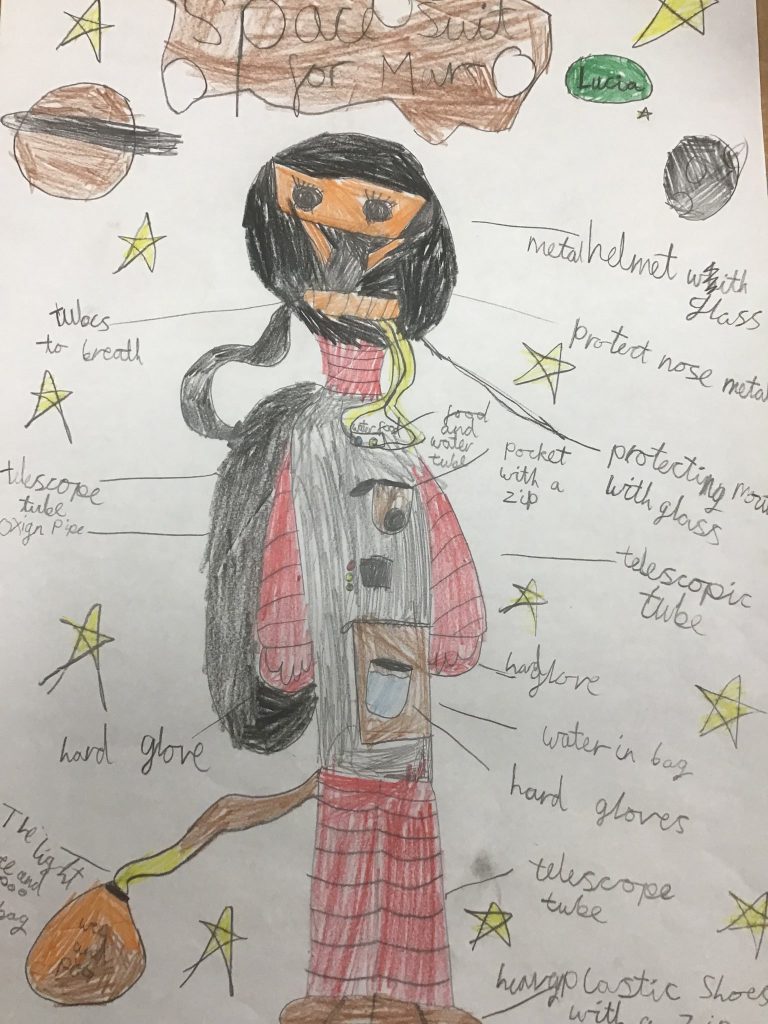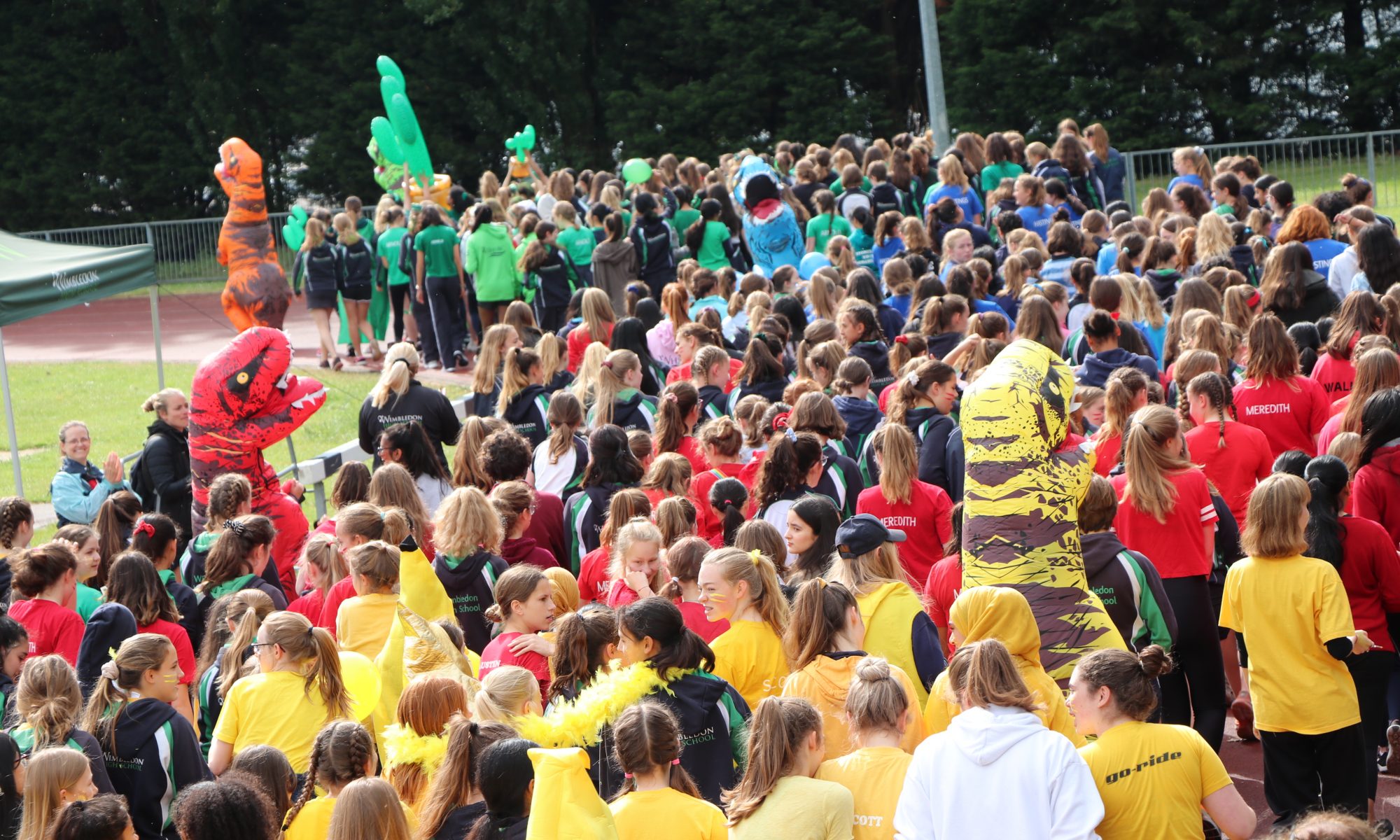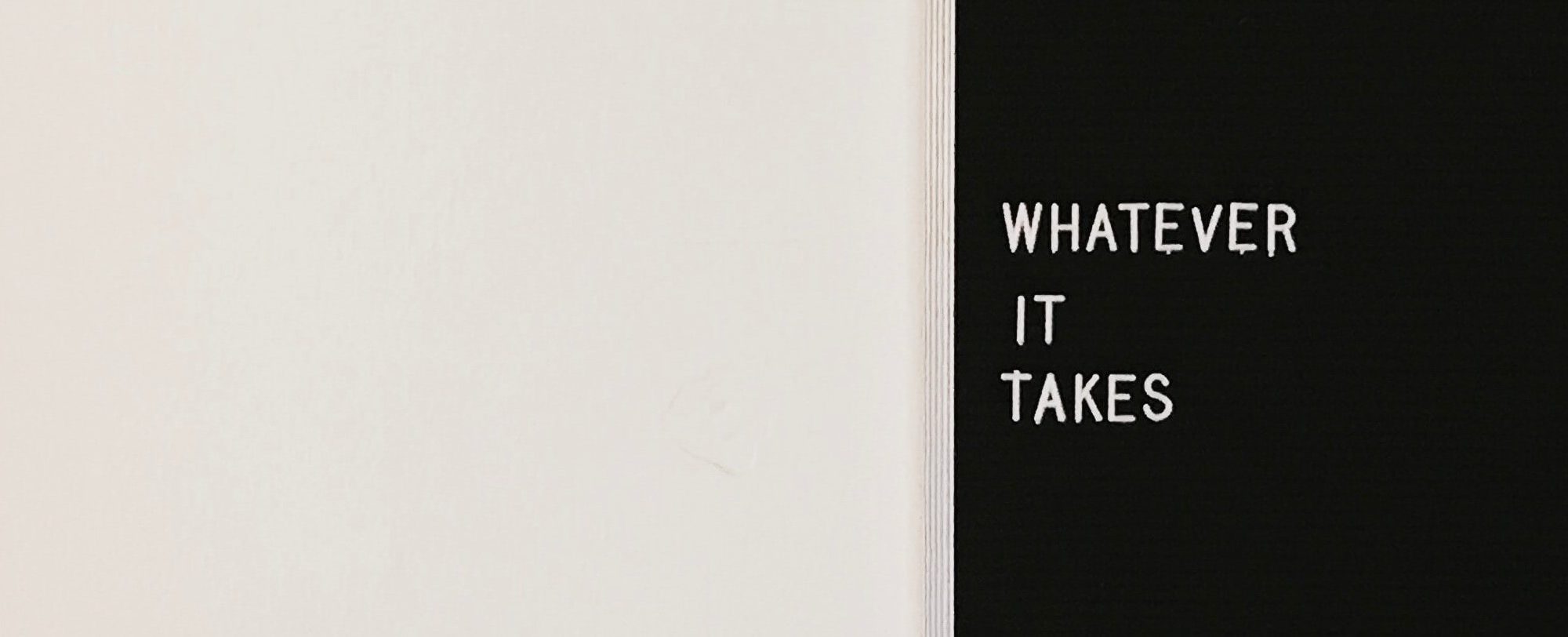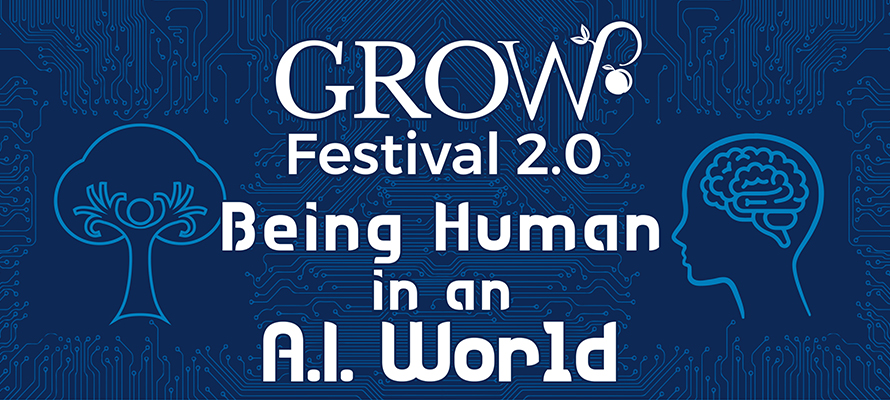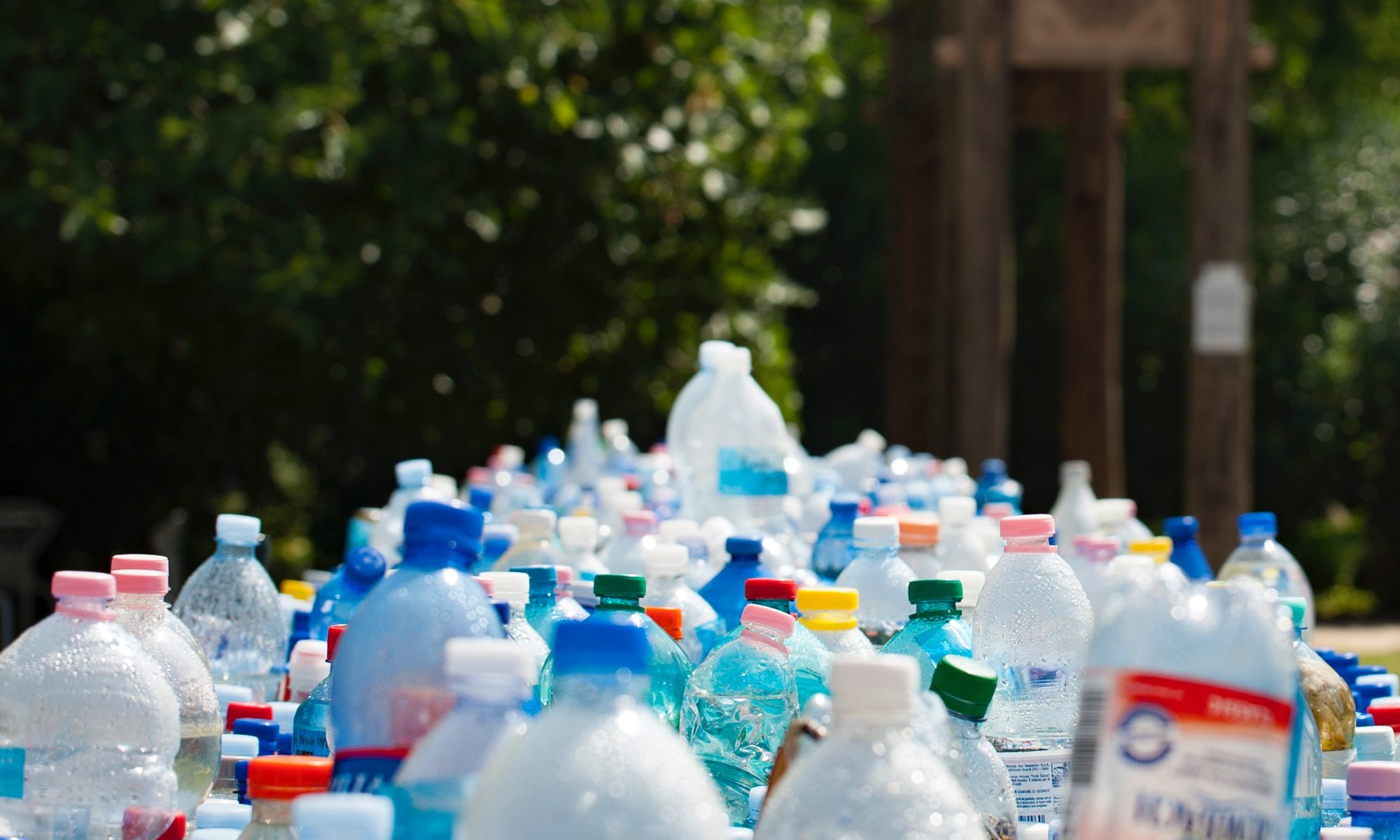Joining in Year 7, I got stuck right into hockey here at Wimbledon High. Now in Year 13, my hockey experience over the past years has been filled with opportunities to learn, persevere and most importantly help me make valuable friendships with girls throughout the school. Hockey at Wimbledon is a sport I would strongly encourage others to play, despite whether it’s your first time picking up a stick or you play for a county team – our amazing coaches and facilities will provide for all abilities and will guarantee you victories. So, I hope to see as many of you on the pitch this hockey season!
Emily – Sports Captain + Netball Captain
Hi guys,
My name is Emily and I’m your Sports Captain for 2019-2020, and I’m also the Netball Captain on the Sports Leadership Team.
I play hockey, netball and cricket. I also used to play tennis and swim competitively. I love sport here at Wimbledon as it is the perfect balance between fun but also competitive and I hope that with the help of the PE Department and myself we can further develop this.
Im in y13 and studying Geography, History and Biology and hope to go onto study physical geography and sports science. I also play the clarinet and saxophone and really enjoy being involved in the many different aspects of co-curricular that Wimbledon High offers.

Being a House Captain at WHS…
Lucy (Y13), on behalf of herself and the three other house captains, explains the role of the house captains on the Student Leadership Team and within the school.
What does it take to be a House Captain?
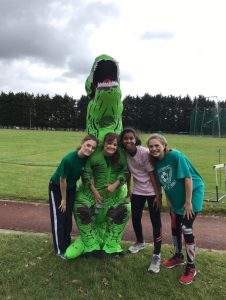
The answer, a (perhaps overly) infectious amount of enthusiasm and spirit to spread to others. Becoming a role model for younger girls as you take on the title as a leader in a different style of community within the school. To encourage, collaborate and, most importantly, enjoy every House event!
As House Captains it is essential that we bring together and lead a family within the school. The House system within Wimbledon High is a wonderful opportunity to provide inter-year bonds across all year groups, setting a precedent for years to come. Regardless of how exciting and competitive our roles may be, the friendships girls make with one another within their Houses proves more valuable to their school life here at Wimbledon High.
What does the role entail?
The possibilities of the role can be endless; it is what you make of it. As House Captain of Arnold, I believe the main priorities of the position are to support and encourage other Arnold girls whatever the opportunity may be, to ensure that they fully express themselves and create a new sense of confidence whilst in a supportive environment. House events allow girls to showcase their talents across the curriculum – from cooking to debating, sport to music – and whilst doing so we hope the girls develop a sense of pride and honour for their House.
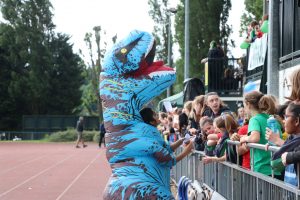
After being in the role since the Summer Term, I don’t think I have ever been as enthusiastic for any position than I have been for Arnold House Captain. The rush to decorate the stands for Sports Day last term saw us all getting together to help design posters and banners to fill up the stand with a wash of bright and exciting colour. The day was filled with high spirits from the girls as they, as true Wimbledonians, battled through the unfortunate rain shower. Chanting at the tops of their voices and sprinting to every finish line, to which Arnold (of course) claimed victory! Speaking for all of us, I can confidently say that we have never felt as proud to lead such a vibrant community of girls that day. Our hopes are high for the following year to come…
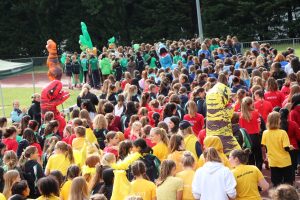
This year our Student Leadership Team’s theme is Connections. As House Captains, we want to encourage more competition between the houses to raise the profile of each house. By making victories more visible throughout the school we hope that this creates a competitive spirit and feeling of pride and identity to each girl’s house. We wish to carry this new ambition into House events this year as House Music has just got underway this week with the raffle drawn of the decades. With Meredith winning confidently last year, House Music is one of the most passionately contested events of the year and with the encouragement and spirit of the girls we all hope to do our Houses proud by conducting each performance. Although, I have rather ambitious hopes for Arnold this year with the 80s… best decade, surely, we have to win
Despite only taking on the role as House Captain for one term so far, I can confidently say we have all jumped into the exciting role with great commitment and energy. Our message to girls in our houses is to put yourself forward, to get involved and to make friends with girls in other year groups. We hope to fulfil our role to the school with even more passion and excitement to make this year the most highly contested year for the Houses!
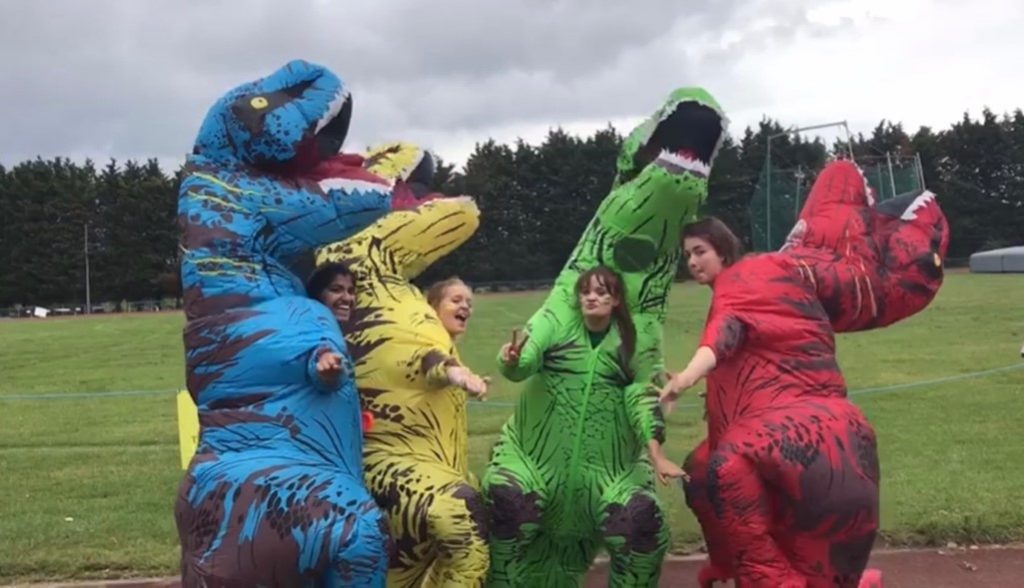
May the best house win…
Coaching at WHS: developing approaches to academic and pastoral support
Emma Gleadhill, English Teacher, speaker, trainer and coach specialising in wellbeing, relationships & harnessing the power of emotional intelligence, discusses the ways we are using coaching at WHS to support the academic and pastoral strands of the school.

September 2019 marks a significant change in my role at Wimbledon – where 1:1 coaching becomes more central. It has taken a year of serious soul-searching and being coached myself in order to move away from a strength and passion (teaching A Level English) which has provided me with so much joy and fulfilment in order to use my ‘Co-Active’ training as a professional coach to work in greater depth with individuals and small groups.
So why? Why coaching? I thought it worth sharing what I see as the value of coaching – what it is and what I believe it has to offer. Coaching has been in the press a great deal over the summer – and as a relatively unregulated industry, there are many different perceptions of what it is and how it can help. Coaching is a relatively new strand to the multi-layered pastoral support Wimbledon High offers. The aim is to provide a rich range of opportunities for courageous conversations to take place that will enable pupils, and sometimes also teachers and parents to develop their voice, consider perspectives, explore their needs, and arrive at a point of choice so that they can act and thrive.
My work as a coach links strongly to my ethos as a teacher – it is about bringing my best energy, attention and training to bring about transformation. This involves examining the mindset, motivation, and creativity – for people to ‘play big’ in their lives and achieve their goals. Whether it is someone seeking coaching because they feel stuck in some area of their life, or someone who wants to dial up their performance, or change the dynamics in their relationships, for me it is about holding the space for the truth to be spoken, fears to be addressed and for obstacles to action to be brought into focus so that a clear path forward can be found. And when that connection is made, in the coachee, we really do have lift-off. Giant leaps are taken and as the momentum builds, my work is to help celebrate, savour and wire in the goodness, the motivation and energy of the possible.
Coaching is all about empowering and enabling others to engage their creativity and resourcefulness and commitment to change. As with teaching at its best – it is entirely in the service of supporting and challenging others to be the best that they can be. Unlike teaching or mentoring you are not approaching problems from a point of expertise and providing content.
What is coaching?
Coaching is:
- More about listening and questioning than giving advice and ‘telling’.
- Confidential – the only exception is where someone is at risk of significant harm.
- Focused on the values and meaning of the topic or situation – what is at stake, why it matters, and what you want.
- Forward-looking – designing practical steps towards your goals rather than dwelling on the issue.
- Challenging YOU to do the thinking, to reflect and deepen self-awareness in areas where you are stuck or play small.
- About using mind and body connections to tap into the emotional resonance of the topic (if it was as simple as thinking it through, you’d be doing it already!)
- Rigorous – you will be held to account for whether you do – or don’t – take the next steps you design at the end of the sessions.
- Time-limited – it is designed to move you on to greater fulfilment and to take the actions that will help you reach your goals.
- Empowering – you will be called upon to recognise and act on your innate creativity, resourcefulness and wholeness. (I trained in the Co-Active method).
- Celebratory – through the joys and the pains of doing the hard work of making meaningful life changes – as a coach, it is my job to champion you and remind you of your strengths, your capabilities and your awesomeness.
- All about personal growth – living more authentic, connected, fulfilled and purposeful lives. Coaching is a major tool for career development in the corporate world. It is like having a personal trainer for your mind, heart and spirit.
What is coaching not?
For me, coaching is not:
- A cosy chat or conversation as we experience in our wider lives.
- Focused on the detail of a problem (because what you focus on grows).
- Therapy – the assumption is that you are creative, resourceful and whole (Co-Active) and ready and able to act on the dialled up self-awareness that your sessions should tap into if the coaching chemistry is right.
- A self-indulgent, ‘Woo-woo’, millennial fad. Trained coaches work in a way that is informed by research in the world of psychology, and emotional intelligence, and have to keep up their own training and self-development. This is why businesses invest in coaching.
So coaching is not only a response to a problem, it is also a powerful 1:1 space to dial up your performance, name and tame the things that hold you back, and generate perspectives on your situation so that you can come to a point of choice. It is all about connecting you to your power and unlocking your potential.
Coaching approaches can also be used in the classroom to develop self-direction, ownership, engagement and independence in learners– as well as to make deeper, more memorable connections with issues by concentrating on their emotional resonance. Training as a professional coach has transformed how I lead as a trainer when I am running speaker events and workshops. It has meant what I have to offer is more focused and the collaborative approach means I am meeting people’s real needs and interests, not overloading with content I have chosen! A discipline indeed!
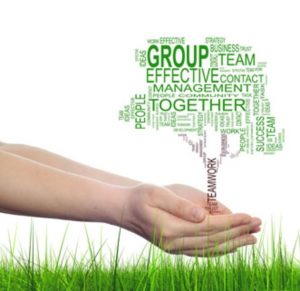
Final thoughts…
When could we take opportunities to use coaching approaches to encourage and empower young people in our lives to greater independence, ownership and engagement in solving their problems and the problems in the world today?
Further reading
Practical Action Off-Grid! Challenge winners
At the end of the summer term all of year 7 were involved in a cross disciplinary project which really tested their geography and science knowledge as well as their research, teamwork, design and communication skills. The project was set in rural Zimbabwe where few villages have access to mains electricity and the pupils were tasked with designing a way to utilise solar cells to improve lives in Gwanda. There was a particular focus on the UN Global Goal of Zero Hunger and all of the imaginative ideas were submitted to the Practical Action Off-Grid! Challenge. We were delighted to discover that Group 15 had won the competition and their prizes have just arrived! Thanks very much to Practical Action for the brilliant books and vouchers that each girl has won, as well as the TTS equipment received by the school. Congratulations to all of the girls for their fabulous work, and especially to Group 15!
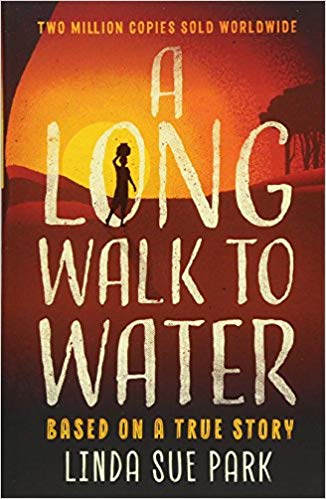
GROW 2.0 – Being Human in an AI World
On Saturday 21st September we host our second Grow Pastoral Festival. The theme for this year is an examination of what it is to be human in a machine age. What questions should we be asking about the way technology affects our lives and what are our hopes for the future? More specifically, how will our young people develop and grow in a fast-paced, algorithmically driven society and what might education look like in the future?
In the morning session Professor Rose Luckin and Professor Robert Plomin will be giving keynote addresses, and then talk with our Director of Digital Learning & Innovation, Rachel Evans. Prof Luckin specialises in how AI might change education; Prof Plomin has recently published Blueprint, a fascinating read about genetics and education. We can’t wait to talk about how education might get personalised, and how that change might affect our experience of learning.
In the afternoon we’ll dive into some provocative debate with Natasha Devon, Hannah Lownsbrough and Andrew Doyle, addressing questions of identity, wellbeing and community in an online age with our own Assistant Head Pastoral, Ben Turner.
So what kind of questions are in our minds as we approach this intellectually stimulating event? Ben Turner brings a philosophical approach to the topic.
Is our ever-increasing reliance on machines and subscription to the ‘universal principles of technology’[1] eroding our sense of empathy, compassion, truth-telling and responsibility?
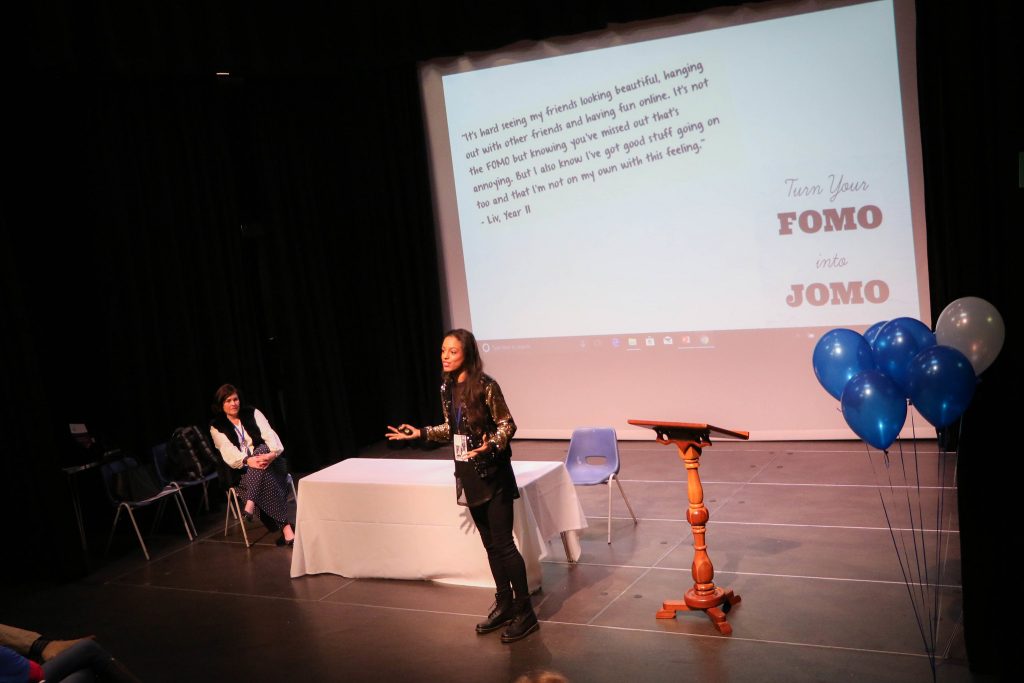
Our smartphones give us a constant connection to an echo-system that reflects, and continuously reinforces, our individual beliefs and values. Technology has created a world of correlation without causation, where we understand what happened and how it happened but never stop to ask why it happened. Teenagers are understandably susceptible to an eco-system of continuous connection, urgency and instant gratification. It is these values that they now use to access their world and that inform them what is important in it.
Are tech giants like Amazon, Google and Facebook creating a monoculture that lacks an empathy for its surroundings? If we all become ‘insiders’ within a technology dominated society, pushing instant buttons for everything from batteries to toilet roll, are we losing the ability to see things from a fresh perspective? By raising children in a world of instant access and metropolitan monism are we creating only insiders; young people who will never gain the ability to step back and view what has been created in a detached way. How as parents, schools and communities do we keep what is unique, while embracing the virtues of technological innovation?
Is social media destroying our free will?
If you are not a determinist, you might agree that free will has to involve some degree of creativity and unpredictability in how you respond to the world. That your future might be more than your past. That you might grow, you might change, you might discover. The antithesis to that is when your reactions to the world are locked into a pattern that, by design, make you more predictable – for the benefit of someone or something else. Behaviourism, developed in the 19th Century, believes in collecting data on every action of a subject in order to change something about their experience, often using punishment or reward to enact the change. Is social media, through its algorithms, gratification systems and FOMO, manipulating our actions and eroding our free will?
Social media is pervasive in its influence on the beliefs, desires and temperaments of our teenagers and you do not have to be a determinist to know that that will lead to a disproportionate level of control over their actions. Does social media leave our young people with no alternative possibilities; locked in a room, not wanting to leave but ignorant to the fact that they cannot?
Is social media the new opium of the masses?
Social media has changed the meaning of life for the next generation. The change in human contact from physical interactions to those, arguably superficial, exchanges online is having not only a well-documented detrimental effect on individual young people but also on the very fabric and makeup of our communities.
In addition to the ongoing concerns about privacy, electoral influence and online abuse, it is becoming increasingly obvious that social media has all the qualities of an addictive drug. Psychologists Daria Kuss and Mark Griffiths wrote a paper finding that the “negative correlates of (social media) usage include the decrease in real life social community participation and academic achievement, as well as relationship problems, each of which may be indicative of potential addiction.”[2]
That is not to say that everyone who uses social media is addicted. However, the implications of the ‘heavy’ usage of social media by young people are increasingly painting an unpleasant picture. The UK Millennium Cohort Study, from the University of Glasgow, found that 28% of girls between 13 and 15 surveyed spent five hours or more on social media, double the number of boys survey who admitted the same level of usage. Moreover the NHS Digital’s survey of the Mental Health of children and young people in England[3], which found that 11 to 19 year olds with a “mental disorder” were more likely to use social media every day (87.3%) than those without a disorder (77%) and were more likely to be on social media for longer. Rates of daily usage also varied by type of disorder; 90.4% of those with emotional disorders, for example, used social media daily.
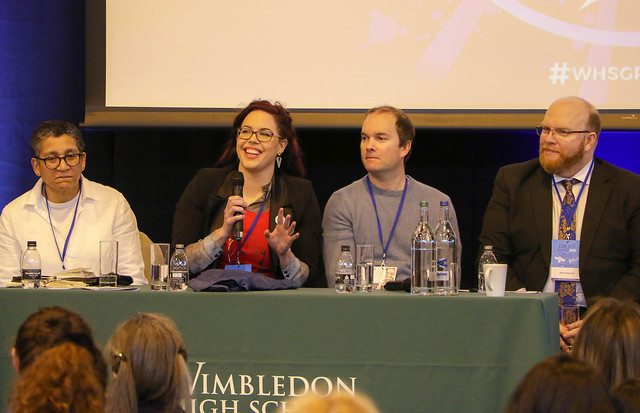
However, there is more to this than just the causal link between the use and abuse of social media and poor mental health. With the march of technology in an increasingly secular world, are we losing our sense of something greater than ourselves? Anthony Seldon calls this the “Fourth Education Revolution”, but as we embrace the advances and wonders of a technologically advanced world do we need to be more mindful of what we leave behind? Da Vinci, Michelangelo and other Renaissance masters, not only worked alongside religion but also were inspired by it. Conversely, Marx believed Religion to be the opium of the people. If social media is not to be the new opium, we must find a place for spirituality in our secular age. Even if we are not convinced by a faith, embracing the virtues of a religious upbringing seems pertinent in these turbulent times. Namely inclusivity, compassion and community, because if we do not, then very quickly the narcissistic immediacy and addictive nature of social media will fill the void left in our young peoples’ lives, becoming the addictive drug that Marx forewarned against.
References:
[1] Michael Bugeja, Living Media Ethics: Across Platforms, 2nd Ed. 2018
[2] Online Social Networking and Addiction – A review of Psychological Literature, Daria J. Kuss and Mark D. Griffiths, US National Library of Medicine, 2011
[3] November 2018
Bioplastics – always a good thing?
Saskia (Y13) questions whether bioplastics have been misbranded as an eco-friendly material and discusses factors we all should consider as consumers.
In the student leadership team, we have been thinking a lot about connections – within the school, within ourselves, and connections with the wider world. You will be hearing a lot more about the environment this year from Flora, our Environment Rep, but as I have been investigating whether the UK should be investing in bioplastics for my EPQ, I thought I would write about a few of my findings and hopefully encourage all of us to think more about the impact we are having on our world, and how we can work together to connect more with the environment.
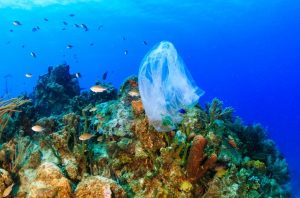 With its many uses – from industrial to home use, packaging, toys and clothes, its durability, light weight and low cost – plastics make economic sense and are in many ways ideal for 21st century living. But we are now all much more aware of the time – up to 1000 years – that plastics take to break down, when put into landfill. An estimated 3 million tonnes of plastic end up in the ocean each year. Alongside the life span factor, the raw material for traditional plastics – commonly from non-renewable sources such as oil – bring questions of sustainability. Acting on this, companies have looked for biomass (wheat, corn, sugar cane, sugar beet, potatoes and other plants) to turn into plastics. Thus, bioplastics have been created. A positive development, we might all agree.
With its many uses – from industrial to home use, packaging, toys and clothes, its durability, light weight and low cost – plastics make economic sense and are in many ways ideal for 21st century living. But we are now all much more aware of the time – up to 1000 years – that plastics take to break down, when put into landfill. An estimated 3 million tonnes of plastic end up in the ocean each year. Alongside the life span factor, the raw material for traditional plastics – commonly from non-renewable sources such as oil – bring questions of sustainability. Acting on this, companies have looked for biomass (wheat, corn, sugar cane, sugar beet, potatoes and other plants) to turn into plastics. Thus, bioplastics have been created. A positive development, we might all agree.
However, straightaway we have to question the energy needed to transport biomass to a manufacturing plant to make bioplastics. We must then consider the energy needed to create them – the energy used in production for any type of plastic is high. Most importantly for the consumer, and what I want to focus on here, is the question of the disposal of bioplastics. It is a misconception to believe that bioplastics are better for the environment than petroleum plastics after life. Bioplastics are not necessarily biodegradable even though they are made from biomass materials. Bioplastics can be made to decompose; however, this is only common in products that have a short life. I am very keen to spread this message!
The Guardian[1] started some months ago wrapping their Saturday magazine supplement in corn starch wrapping. The corn starch wrapping can go into compost bins and decompose – no problems there. However, the new Coca Cola Plantbottle[2] cannot decompose. A plastic bottle, even made from biomass, will on average take 450 years to break down.
 What CocaCola want you to do is to recycle your PlantBottle in the correct facility. In keeping the bioplastic of the bottles in use, they are promoting the circular economy that is becoming much more of a consideration for anyone in the manufacturing process. The problem, of course, is the human factor: how can you ensure the correct separation of materials to recycle efficiently and without contamination? If the separation does not work, one type of plastic can easily be mixed into another type and thus contaminate a batch of recycled product. This batch is then not able to be used in certain situations or at all due to the change in properties.
What CocaCola want you to do is to recycle your PlantBottle in the correct facility. In keeping the bioplastic of the bottles in use, they are promoting the circular economy that is becoming much more of a consideration for anyone in the manufacturing process. The problem, of course, is the human factor: how can you ensure the correct separation of materials to recycle efficiently and without contamination? If the separation does not work, one type of plastic can easily be mixed into another type and thus contaminate a batch of recycled product. This batch is then not able to be used in certain situations or at all due to the change in properties.
This is just a snapshot of some of the findings from my research. I believe bioplastics are a good alternative to the petrochemical plastics that we have used for so long. I say this with caution though because as I hope I have demonstrated, there are still many downsides to the materials. However, I believe that as our technology improves the impact that bioplastics have will decrease. It is key that we make these changes if bioplastics are ever going to be sustainable especially as the world is developing rapidly.
By focusing on education and minimising the impact humans are having on the environment we will ensure that there is a future for younger generations. It will involve considerable investment; we would need to change the materials we use, spend money clearing up plastic pollution and grow to educate an awareness of the afterlife of all types of plastics, including bioplastics. My main belief is that we need to change the way we use materials. It is just not feasible to continue increasing the amount of plastic packaging that the world is using and thus the most ideal situation is to dramatically decrease the amount of packaging and our dependence on plastics overall. I hope I have inspired you to think; if you have ideas of how we can do this within our WHS community, do let the SLT know.
References:
[1] Natasha Hitti, [website], 2019, https://www.dezeen.com/2019/01/14/guardian-biodegradable-wrapping-design/
[2] CocaColaCo, [website], 2015, https://www.coca-colacompany.com/videos/introducing-plant-bottle-ytaevvjxqwaz8
Wimbledon High awarded Primary Science Quality Mark Outreach Award
We are absolutely thrilled that Wimbledon High has been awarded the Primary Science Quality Mark Outreach Award. Primary Science Quality Marks have been awarded to 300 infant, junior, primary, middle and special schools this September to celebrate a commitment to excellence in science teaching and learning.
So far, since its national launch in 2010, over 3500 schools across the UK have achieved a prestigious Primary Science Quality Mark, with just a very few being awarded the Outreach level. This is only awarded when the impact of science leadership, teaching and learning can be demonstrated on other schools, both locally and nationally.
The Primary School Quality Mark programme enables schools to work together to share good practice and is supported by professional development led by local experts. It encourages teacher autonomy and innovation while at the same time offering a clear framework for development in science subject leadership, teaching and learning. Schools that achieve PSQM demonstrate commitment and expertise in science teaching and leadership.
The Primary Science Quality Mark is led by the University of Hertfordshire, School of Education in collaboration with the Primary Science Teaching Trust. Jane Turner, PSQM National Director said: “Gaining a Primary Science Quality Mark is a significant achievement for a school. The profile and quality of science teaching and learning in each awarded school is very high. Children are engaging with great science both in and outside the classroom, developing positive attitudes towards science as well as secure scientific understanding and skills. Science subject leaders, their colleagues, head teachers, children, parents and governors should be very proud.”
At Wimbledon High Madeleine Garczynski and Alex Farrer coordinated the school’s PSQM submission, but it has been very much a team effort that all of staff, pupils and parents should feel very proud to have been involved in.
Alex Farrer is also the Primary Science Quality Hub Leader running the SW London PSQM Hub from Wimbledon High. This year nine other local primary schools also gained their Primary Science Quality Marks as part of our hub, led by Alex, in her primary science professional development role. It has been an absolute pleasure to work with all nine schools and the science partnerships that have been fostered between schools this year will last for a very long time to come.
Congratulations to all schools gaining their Primary Science Quality Marks – what an amazing team effort it has been!
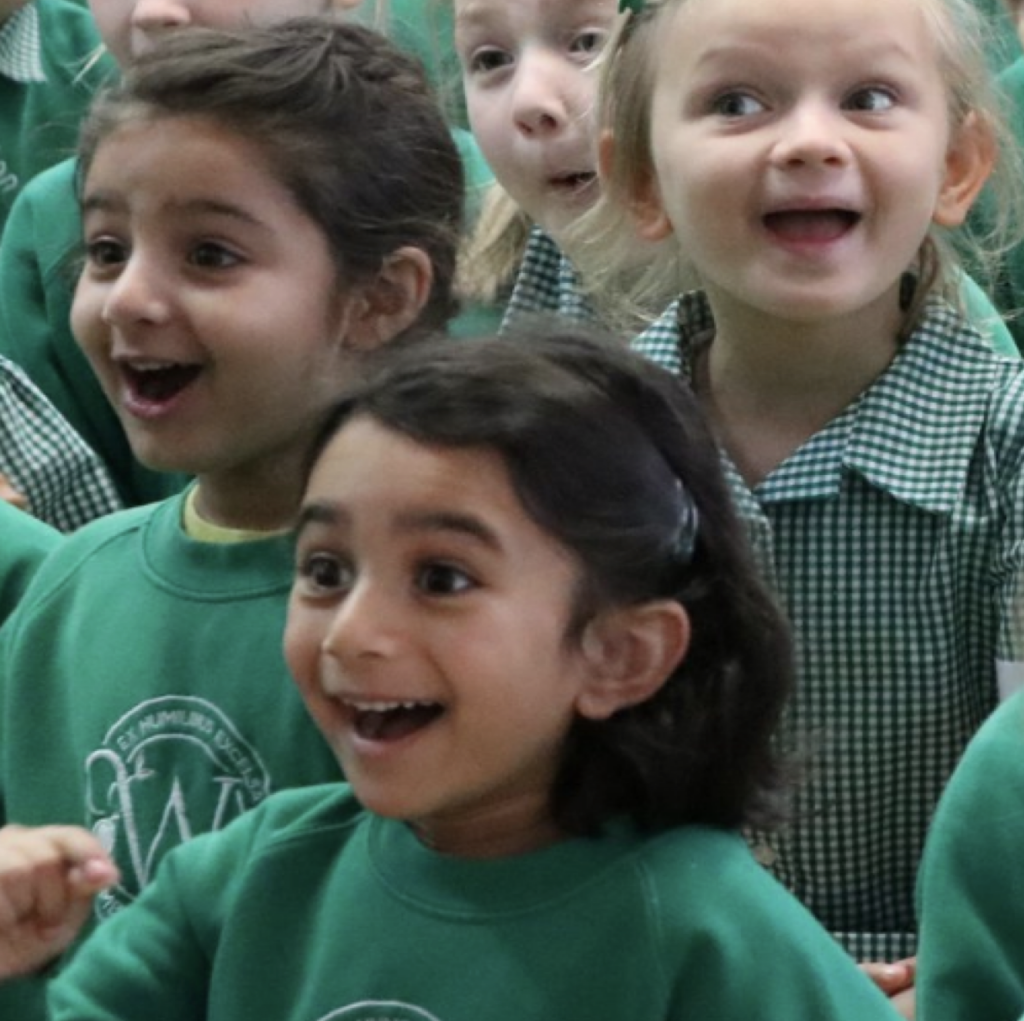
WASP-13b needs a better name!
Take a look here at the current quest to find out a new name for the exoplanet WASP-13b.
Our school community may be very interested to put their ideas forward before October 18th, as each year we have a group of year 12 students that work with scientists from UCL researching exoplanets and their atmospheres in the ORBYTS group – Original Research By Young Twinkle Scientists. Last year we studied WASP-122b finding out a great deal of information about it from transit data, including that it’s atmosphere was similar to that of Jupiter. Though it certainly didn’t have a very snappy name either…
Do send your ideas in to rename WASP-13b – what an opportunity!
Fantastic news from The Physiological Society’s Mission to Mars competition
Just before the summer term ended the then year 2s had a fabulous session about space exploration and the difficulties that human bodies might encounter on Mars. Mrs Garczynski and Dr Seeta ran a fabulous session for the girls where they found out about the potential problems on Mars, thought creatively about ways to solve those problems and designed space suits to help cope with the demands. The girls came up with some really good ideas and their space suit designs looked terrific.
On Saturday Arabella and Lucia, and their families, were invited to attend The Physiological Society’s annual President’s Lecture, held at the Royal Institution. They had an amazing time taking part in a range of hands on activities as well as listening to a talk given by former NASA astronaut and physiologist James Pawelczyk all about the human limits of space exploration. Both of the girls had been shortlisted in the 5-7 age range of the competition and Arabella’s design was chosen as the overall winner. Very many congratulations go to Arabella and to Lucia. Also very many congratulations to Ewan who was also shortlisted in the 5-7 age category and attends Burlington Infants School which is one of the schools we have been working with in our Primary Science Quality Mark hub this year. What a wonderful opportunity to spend the afternoon with an astronaut!
